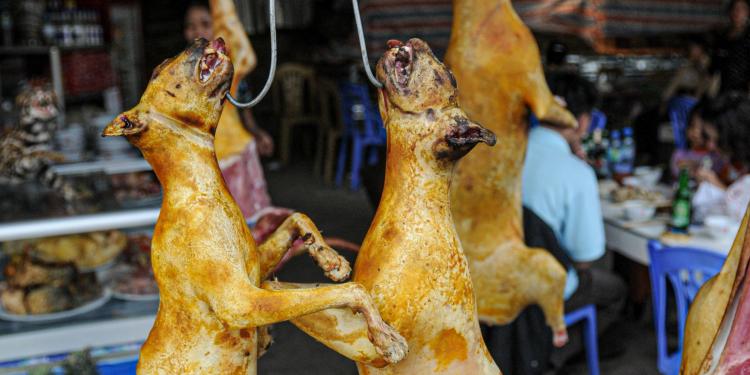A centuries-old practice in South Korea has come to an end with the passage of a landmark law by the parliament that outlaws the killing and sale of dogs for meat.
The law will go into effect by 2027, giving people who are involved in the dog meat trade time to find other ways to make money and find jobs.
Although the new law does not forbid the consumption of dog meat per se, it does forbid the butchering of dogs. Criminals may receive a sentence of up to three years in prison; those convicted of selling or raising dogs for meat may only receive a sentence of two years.
Recent years have seen a clear cultural shift away from the consumption of dog meat; a Gallup poll indicates a notable decline in the food’s popularity. Just 8% of respondents last year said they had tried dog meat in the previous year, down from 27% in 2015. There has also been a decline in support for dog meat consumption; less than 25% of those surveyed said they were in favor of it.
There is a clear generational division in opinions about dog meat. Although some elderly South Koreans regard foods like “boshintang” as specialties, the younger generation increasingly sees dogs as members of the family. Student Lee Chae-yeon, 22, highlighted the need for the ban in order to advance animal rights, saying, “Dogs are like family now, and it’s not nice to eat our family.”
According to government statistics, there were about 1,600 dog meat restaurants and 1,150 dog farms in South Korea in 2023. All dog meat trading establishments must now provide local authorities with plans outlining how they intend to phase out their operations.
The ban has the support of President Yoon Suk Yeol and First Lady Kim Keon Hee, who are well-known for their love of animals. The government has pledged to assist everyone impacted by the prohibition, including proprietors of restaurants, butchers, and farmers. Nevertheless, the compensation plan’s specifics have not yet been decided upon.
Dog meat producers contend that the practice’s waning appeal among younger people should have allowed it to gradually fade away over time, while animal rights organizations welcome the ban and see it as a step in the right direction toward a more compassionate future. Some elderly farmers, who claim that the ban violates people’s right to food freedom, express desperation at the impact on their livelihoods.
The ban has sparked intense debates. While younger generations and animal rights advocates celebrate a new era for South Korea – one that embraces a dog-friendly future – some older citizens lament the end of a tradition that dates back to the Middle Ages.

